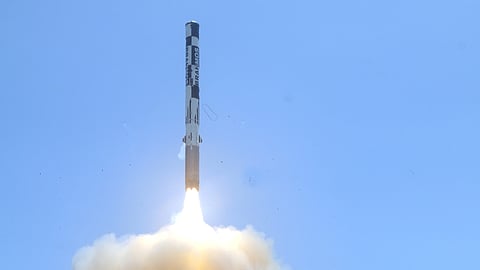
- NEWS
- the EDIT
- COMMENTARY
- BUSINESS
- LIFE
- SHOW
- ACTION
- GLOBAL GOALS
- SNAPS
- DYARYO TIRADA
- MORE

In May, the Philippine Embassy in India attended in New Delhi the Defense ICT Conclave, which showcased India’s indigenously developed ICT and cyber technologies and solutions, with emphasis on defense applications.
India’s top ICT developers, manufacturers and service providers attested to India’s ever-growing gains in telecom-equipment design and manufacturing (with products now exported to nearly 70 countries) and how ready is India for overseas export partnerships and collaboration.
Defense equipment cooperation is an area seeing enhanced cooperation between the Philippines and India.
India’s expanded developmental partnership with the Philippines sits well with Mr. Marcos’ own major precedences, such as fintech and digital governance, which have had many successes in transforming a relatively young but successful nation.
Defense and security cooperation is uppermost, granted the universally acknowledged objective for a free, open, inclusive and prosperous Indo-Pacific.
“As a fellow democracy, an Asian partner and as a dynamic economy, our relations with the Philippines are of enormous importance to us in India,” said Indian Ambassador to the Philippines Shambhu Kumaran.
“From our ever-closer political dialogue, to our growing trade and investment ties, to our deepening developmental partnership cutting across vital sectors, to our dynamic engagement in defense and security and to the vibrancy of our cultural interactions, India and the Philippines have never been as close as we are today.”
India is working on the agenda of its visionary leadership, and Kumaran is poised, in the most dynamic phase of the two countries’ bilateral engagement, to make it happen.
Indian tech training
Kumaran revealed that more Filipino government employees are being trained by India to equip them better for 21st-century government jobs through the Indian Technical and Economic Cooperation.
ITEC trains Filipino public servants on a wide range of programs including artificial intelligence, cyber technologies, audit, engineering and technology, law enforcement, defense cooperation, agriculture, health and yoga and various aspect of government functions.
“These courses will help officials to improve their functioning when they come back to their respective countries. There were short and long courses given that were focused on professional competence.”
Last year, 40 employees were sent to India for ITEC, including officials of police, government auditors and the Philippine Coast Guard, among others.
“We are targeting over 50 this year. There are 70 slots available for the Philippines, depending on the utilization of courses. The more the utilization, the greater number of slots will be allotted to countries.”
Since 1964, ITEC has reached an estimated 300,000 participants from 160 partner countries.
“We are looking at more specialized courses related to defense, Coast Guard, and national security, among others. We found that the PCG is very receptive to our courses, especially maritime operations and pollution control. We are seeing this as a capacity-building initiative.”
Defense training covers specialized fields, like maritime law, diving, aircraft and naval mechanics, artillery, among others, giving opportunities to defense officials from the Philippine Army, Philippine Navy, Philippine Air Force and PCG.
